Teaching our students that it’s OK to stutter is such an important message, yet one that often gets overlooked. Join me as I chat with producer and director Ryan Gielan about the journey through his new award winning documentary, My Beautiful Stutter. Tune in below to learn more and be sure to check out the links and resources section at the bottom of the page!
Links & Resources
- The Digital SLP Membership
- My Beautiful Stutter Official Site
- To Rent on Vimeo – My Beautiful Stutter
- To Watch on Discovery – My Beautiful Stutter
- Official Instagram Page – My Beautiful Stutter
- Official Facebook Page – My Beautiful Stutter
- Official Twitter Page – My Beautiful Stutter
- SAY
- ASHA
Full Transcript of Podcast: My Beautiful Stutter with Ryan Gielan
Episode 77: My Beautiful Stutter with Ryan Gielan
Jessica: You're listening to the Speech Space Podcast, a podcast full of tips and resources for SLPs. I'm your host, Jessica Cassity, and this is Episode 77. Hey everyone! Thank you so much for joining me today. I am really excited to have film producer and director Ryan Gielan come on the show today to talk about his new movie, My Beautiful Stutter. Before we get started, I did want to mention that this podcast is brought to you by The Digital SLP membership site, which is a site that features time-saving interactive digital resources that are all teletherapy platform-friendly. You can learn more or sign up by heading over to thedigitalslp.com/digitalslp. Before I bring Ryan on the show today, I did just want to go ahead and let you guys know a little bit about him. Ryan is the producer and director of the new documentary, My Beautiful Stutter, from executive producers, Paul Rudd and Mariska Hargitay, streaming exclusively on Discovery Channel in the United States, and also available now on Vimeo on Demand throughout the rest of the world. He is also the executive producer of the short film, Sometimes I Think About Dying, which was honored as an official Sundance Short and shortlisted for the 2020 Academy Awards. Ryan and his company, Believe Limited, have won the SABRE AWARD, the Shorty Social Good Award, and two WEBBYs Awards, and was recently nominated for a Norman Lear Imagen Award for positive representations of Latinos in entertainment. All right. So now that you know a little bit more about Ryan, let's go ahead and bring him on the show. Hey Ryan, thank you so much for coming on the show today.
Ryan: Thank you for having me.
Jessica: So let's just dive right in. I would like to know how you became interested in stuttering and what led you to create the movie, My Beautiful Stutter?
Ryan: Well, I'm not a person who stutters. And I went on 35 years believing that I had never met anyone who stuttered. And then my producer, Michael Alden, who produced The King's Speech on Broadway and on the West End, so the play version, not the movie version. He took me in 2014 to the SAY Gala and SAY is The Stuttering Association for the Young and the gala is their sort of annual fundraiser. You get a hint of it in the movie, you see pieces of it. And the SAY Gala, it's in lower West Side, Manhattan. Beautiful auditorium, everybody's dressed beautifully, 500 people filter in and fill the place, and the lights go down, and a single spotlight hits the stage. And a little boy, eight years old, you know, he's got on his little gray suit, little blue tie. His hair is all cut and gelled and he's holding a little piece of paper, walks out to center stage all by himself, in the spotlight, reads from his paper, thank you for coming to the 2014 SAY Gala. When he was done, he froze and he looked out and there was silence. And I realized later he was waiting for the laughter. He was waiting to hear snickering. He was waiting to hear people make fun of him. He was waiting to see people laughing. After a few seconds of silence, though, he got a standing ovation. Everybody stood, this applause wash over him. And in that moment you could see him grow a foot, shoulders rolled back, he was emanating light. He literally floated off stage and it was a transformative moment for him. I realized later, because in that moment he realized that everything that SAY was telling him was true. That his voice as a person who stutters was worthy of being heard. That his voice was worthy of being heard, that he was worthy of friendship, he was worthy of love, he was worthy of respect, whether he ever became 1% more fluent or not. As you are, right, is the big thing. The rest of the night, I heard all these stories of bullying and abuse and meanness. And I left feeling really embarrassed at how complicit I had been in making life difficult for young people who stutter, you know, or young people with any disfluency, and young people who are different, but predominantly young people who stutter. Because I spent my entire life, if somebody tripped on, you know, not as a 35 year-old, but from ages maybe 14 to 25, teasing people who stuttered or tripped on words or... So anyway, I left really fired up, really ashamed, really angry, ready to do something. And I realized that nobody was making a movie about kids who were struggling like this. And I could either turn away or I could grab my camera and go do something. So I decided to go do something.
Jessica: I love that. I love that. Yeah, you're right. I think there's not a lot of awareness out there. I mean, especially focusing on the childhood aspect and the emotional component that goes along with that. So let's talk about Camp SAY a little bit. I know that you spoke of SAY, and is there any background information we can give about SAY to our listeners who maybe haven't heard of SAY before or what they stand for, what they do?
Ryan: Yeah, SAY is The Stuttering Association for the Young. It was founded in New York City by Taro Alexander, who was a professional actor, performer. He was in the musical stomp for years. The way he describes it is he spent 26 years pretending it or hiding the fact that he stuttered and he didn't have anyone to talk to and it was incredibly difficult and exhausting and emotionally exhausting to continue to hide that. So at age 26, he decided to create a place where young people who stuttered could come and stutter openly and speak as they are, instead of focusing on fluency or strategies or you know, worrying about being bullied. And they started out doing small weekend workshops over the course of about 15 years. They grew into a pretty large organization and now they're almost on year 20. And at this point they do weekend workshops and weeknight workshops all over the New York City area. They have a D.C. office, they do a two-week camp for young people who stutter in Upstate New York, but then they also do regional camps for long weekends, all over the country. And the entire mission is effectively trying to impress on young people that if they never become 1% more fluent, they are worthy of being heard. The way they speak is inherently beautiful and it's the world around them that needs to change, not them. It's a safe place to come and stutter openly. And they do a lot of really incredible programs that are very focused on self-expression. So a lot of creative writing, a lot of performance pieces. The camp, as you see in the film, is a true sleep-away summer camp with all the outdoor activities, but still a focus on expressing yourself creatively so that you can start to talk about it and process the challenges of being a young person who stutters. Just a really, really powerful organization. That is, from my point of view, as a filmmaker and as an outsider coming into this world and kind of surveying it from 10,000 feet, I think they are revolutionary. I think when you look at the spectrum of ways that we engage young people who stutter, on one end of the spectrum, there is the idea that fluency is the only victory. And on the other end of the spectrum is SAY, who is saying, if you never become 1% more fluent, that it doesn't matter the way you speak is beautiful. And we need to change the world around you to understand that and accept that and listen. And I think that spectrum for literally centuries, we've been all the way over to varying degrees on the end of the spectrum of fluency is the only victory. And I think SAY is the first group that is way exclusively over here on the other end of the spectrum of if you never become 1% more fluent you're worthy. And that to me is revolutionary because what it is saying to young people has the power, like I saw with that eight-year-old on stage, it has the power to completely reframe how they view themselves and their lives.
Jessica: Yeah, definitely. And it seems like the greatest transformations there, it's not coming out more fluent than when you went in, you know, it's more of the peace of acceptance.
Ryan: Truly.
Jessica: Yeah. Yeah, now what would you say, and I... it's escaping me the little girl's name—not little, but one of the girls in the movie, her father was very disappointed and adamant that she be more fluent when she finished the camp. And I believed she had just gone to another camp or some sort of program for fluency. And his perspective was very different than most of the other parents and children that, you know, talked during the movie. But could you speak to that a little bit and maybe, you know, what message could we send out there to parents with that philosophy?
Ryan: Yeah. I think I've come to have a lot of empathy for SLPs because it seems like very often you're caught between knowing that you need to be a great psychosocial support system for a kid, but parents and their teachers are asking you why the kid isn't becoming more fluent. And it seems like a very, very difficult position to be in. And I think Mark and Melanie are the two characters you're referencing and they're in the film to kind of highlight that challenge, right? Mark is not a villain. Mark is in there because like every other parent in the film, he is coming from a place of true, deep love for his family and his kids. Mark would run through a brick wall for his kids. Unfortunately, Mark believes that the best way to help Melanie is by trying to make her fluent or trying to help her become fluent through workshops, through therapy, through a bunch of strategies. And I think, you know, I wanted to make the point that even when you are acting from a place of love of, of deep love for your kids, you can still either do damage or you can still lead someone to a place where there may not be a victory available to you. And what does that mean for the kid? You know, and I respect Mark and I understand it, you know, when my now four-year-old was two, two and a half, he started stuttering as a lot of, a lot of kids his age do.
Jessica: My daughter did as well around that age.
Ryan: Yeah, and you know, I think honestly, one of the things that made me even more empathetic to Mark and other parents who feel this challenge is like, at that point, I had been working on this film for five years and I still almost freaked out. I was just like, how do I help him stop stuttering? It's such an organic reaction because just like if your child has a bad fever or a cold, you literally sit there and think, God, just please give me the cold. Just let me take this, you know? And the parents are so—it's such a difficult position to be in. And that's why Mark is in there is because I want, I want people to have empathy for him and that position and the feelings that other parents have. But I also want to show that even when you feel that way, the best answer is probably to go in the direction of the other parents in the film who have said, I am going to stop pressing my child to become more fluent because no matter what, even if they become 5% more fluent and then 70% more fluent and then fall back to the original stuttering patterns, I want them to know that they are loved and worthy and of value and deserve to be heard. And it just is... it's a very difficult thing. And I think Mark and Melanie were both very brave for participating in the film. You know, I showed them the sequences. I showed them the whole film. I showed them what we were doing. And, you know, to be that vulnerable and that candid, it takes a lot of courage, you know, especially when you're being held up in contrast to a lot of the other participants. And my hope is that in seeing the film and talking about it over time, you know, Melanie will realize that there are legions of people out there and hopefully Mark will be one of those people who believe and who will tell her it doesn't matter if you're ever 1% more fluent.
Jessica: Yeah. I like it because it does highlight reality. And it kind of ties into what you're talking about. Like you said, with the struggle at the SLP, because there are, I can think of so many parents who come in or just fix this, you know, fix this problem. I can think of some adults that I've seen where we try to work on acceptance and that just doesn't sit right with them. And they'll, you know, when I was working in private practice, they would leave. They wouldn't come back, you know. If the goal was acceptance, then they didn't want to hear it because if it wasn't achieving a 100% fluency, then they weren't interested, you know? So it does highlight a bit of reality there, you know, in what you see in the real world, from parents and some people who stutter.
Ryan: Yeah. I think, I think SLPs are in a very tough position. And I think maybe over time that position becomes a little more tenable. If, if for instance people, if the film becomes enough of a reference point, I think that could help everybody a little bit. Because I think the more parents... cause I think there are so many parents out there, no one has ever said to them when they talk about their child starting to stutter, no one said to them, oh cool, that's fine. Don't worry about fluency. They'll either grow out of it or they won't. And then, you know, it's fine. Like no one says that. It's just not, it's not ubiquitous enough. It's not enough of a philosophy yet. And my hope is that the film becomes kind of a touchstone in those moments. My honest hope is that the minute an SLP has a new family or a new young person coming to their practice, they say, look, one, go watch this movie so that you realize I'm not blowing smoke. So you realize you're not alone. You realize that it's okay if you never become 1% more fluent and you realize that there is a whole world out there that is ready to accept you. Right? So step one, go watch the film, understand those things because that's what we're going to focus on here. And my hope is that their parents watch it with them because I think it would establish, it has the potential to help establish a new baseline for how people feel when their child starts stuttering or how the child feels when they start stuttering.
Jessica: Yeah, absolutely. Absolutely, and I think when they see other people going through it and they have that relatability, you know, and I think that that always helps and maybe they don't feel so alone in what they're going through. You know, now what... I love that your movie is available as a reference because I do think this, this could be life-changing for so many families. There are so many programs out there that I'm thinking of, they're selling, you know, a 100% fluency. What advice would you give to SLPs listening? I mean, aside from, of course we can now refer them to this movie, to kind of help to move away from that.
Ryan: Yeah. I think I get a little cringey when, when those, when I see advertisements for those programs. You know, I think one thing that Taro talks about in the film and talks about when he's speaking with parents, is that even when you do programs like that, when you see gains, what you're always running the risk of, what is very likely is a quote unquote regression. And that has the potential to teach the kid that they are failing and that how, how toxic and dangerous can that be? But that aside, like... so I've done about 225 screenings over the last two years, film festivals, screenings, one-off screenings with various SLP groups in school districts and NSSLHA organizations all over the country. Half of the screenings have been with SLPs or SLPs in training. And I always try to add the caveat like the film is not about speech-language pathology. So I didn't study speech-language pathology. So forgive me for having like a lack of a vocabulary around it. The best advice I can give is, is more about what I observed and the framework that I think about engagement with people who stutter. And I think it applies to SLPs as well. And that is, for young people who stutter to a person in my experience, the minute they leave their front door, the armor goes on. And if their home life is difficult, the armor goes on the minute they wake up. So let's, let's take that example. You're 10 years old, you wake up in the morning and as soon as you get your bearings, the first thing you do is you think, okay, all I have to do is get back to this bed and close my door and turn out the lights and I'll be okay again. Okay, and you put your armor on for 12, 15, 16 hours to go out into the world. And it's stressful. It's emotionally stressful. It's physically stressful often to stutter. And the armor stays on all day through school, through the bus ride to school, through school, through practice afterwards, through dinner, through engaging with your family, teachers, other young people, teammates. You come back, the armor comes off and you go to sleep and that is life day in and day out. So how do you—the advice I have is more of a question—how do you as an SLP become a place where for 45 minutes or an hour, that young person can take the armor off? And Taro made the point. We did an Instagram live like a week ago and I was talking him through this visual that I just gave. And he said, the thing that he would add to that is a lot of SLP practices, the first time they're meeting a kid, 10, 12, 14 years old, whatever it is, they're sitting across from the kid, asking them to speak and making notes about how that young person stutters. There's almost no way for that young person's armor to come down when that's their first impression of this person, because that immediately separates this person now and puts them in the bigger adult world, where the young person is already struggling because you are being monitored. You're being evaluated. Your stutter, is first and foremost, a thing that is broken. And you are establishing, even if you don't say we're going to fix you, you are establishing that the goal is to fixing this young person. What would happen if the first six months that you were with a young person all you're doing is talking. Just getting to know each other; talking about life. When the young person brings up the stutter you're engaging them and asking them what it feels like? How hard is it to be in school with this? And it's tricky. It's a huge ask to ask a speech-language pathologist to just talk and get to know a young person because you have parents saying why aren't you fixing this? You have teachers saying why aren't you fixing this? You know, it's a huge, huge challenge. It's a very difficult position to be in but it's the challenge that I tried to put front and center is how do you put the practice more about the kid feeling like they are worthy of friendship and love and being heard as opposed to how do you make them feel like this is where we're finally going too fix you.
Jessica: Yeah, that makes sense. I would imagine a lot of, I'm... my brain is kind of, you know, I'm thinking as you're talking, because... So if you're seeing someone who's, where insurance is covering, then you have to worry about justifying and so I'm trying to think, how can we make those goals where insurance can reimburse? And I'm thinking maybe it's because, you know, a lot of times it'll be a goal, a fluency goal. Like you will be fluent 80% of the time in conversation, but maybe it's you will openly discuss stuttering or comfortably discussed stuttering for three minutes. And then maybe it's four minutes or five, you know, I'm just trying to think of ways that we can measure that, where it is kind of hands off. You're not, you know, doing check marks and X's and all that, because I do think, I mean, I agree with you. I discourage any sort of paper, you know, data collection where the students are very aware. Sometimes what I would do is just say, I'm going to put on this little tape recorder, and scoot it over to the side and we're just going to chat kind of openly. So you're not, it's not as judgmental. You can go back later and kind of listen, you know, you can listen to things. But when you're sitting there judging, it's very hard to be like, Oh, it's okay, it's fine what you're doing, but let me just, you know, make these little data marks here, but don't worry about it. You know, it kind of contradicts what you're saying. So, you know, I liked that idea of just talking. I think the SLP challenge, which I think it can be done, we just have to think creatively on how we restructure, how we think about writing goals for the schools to say, okay, this student still is eligible for services. And the same for insurance, too. It's just to make sure that we have a way. Like I said, I think it can be done. We just have to change the way that we're thinking, which I think is a big part of the movie is just changing the way that everyone is viewing stuttering.
Ryan: Yeah. I have to say, I don't envy the position that you're in, you know, because even if, even if you, with the best intentions, you know, it can be so difficult to balance all the competing interests that are weighing on you all. And one of the most pleasantly surprising, and just like uplifting things about the last couple of years of doing these screenings, is that the stuttering organizations haven't been super supportive because they see SAY as a fundraising competitor, but ASHA and NSSLHA have been extraordinary, extraordinary. ASHA showed the film, brought me down, and brought a couple of the young people from the film down to do a Q & A, showed the film to about 350 SLPs on the opening night of the 2019 ASHA. I think it was, or maybe the 2020. I forget it's all such a blur with COVID now. They were so supportive coming out of that. They've put out a couple of social media posts about the film, the NSSLHA chapters have been amazing. There is true empathy and true engagement there. And I'm just wondering, like, I know change happens slowly, but I feel good about the future of this because the folks paying the most attention are the SLPs. And I think it's going to take an ASHA to really, you know, make change. I think it has to be as much as it has to be bottom-up. It also has to be top-down. And it has to be ASHA saying, we're going to change how we do this or how we advise SLPs to do this.
Jessica: Right. Right. Yeah, absolutely. I mean, I think it's all about awareness and I love that you mentioned that you were showing this to student clinicians. Because I think that's a great place to start too, because I think, you know, whenever you're going to school that professor who's teaching you about stuttering has the power to change the future of how you approach stuttering. So, you know, I think the sooner, the better that you can learn about this during your career as an SLP, you know, I think that's going to be a helpful thing too.
Ryan: Certainly.
Jessica: Yeah. So what would you say about applying this to other situations? Because I know this is a movie about children who stutter, but I feel like a lot of this can apply to children in general facing difficult situations. Can you think of anything where this might apply to other children out there as well?
Ryan: I think about that all the time, because, you know, as a parent of a four-year-old and a one-year-old, there are so many times where prior to having the experience of making the film and engaging with Taro and young people, I could see myself just kind of plowing through a situation to get through it. But there are so many times now where I take a knee and I get down to eye level with my son and I let him know that I'm ready to listen. You know, and he can take his time and express whatever he needs to, even if it's something silly, you know, about his dinosaur doesn't make the noise it made yesterday. You know, it doesn't... to him it's very serious and very real, you know, like.... And I think watching Taro be present for every person that he meets and engages, and I mean, every person. Watching him be present has been a masterclass in empathy and in listening and it's changed the course of my life. It changed the course of my relationships. And I think, I hope that's something that comes through in the film is, on the one hand, it's revolutionary how present and kind, and the kind of listening that Taro does and the kind of listening that his team say he does. The kind of listening that he's able to get other kids to do, the kind of listening that 10-year-olds and 14-year-olds do because they are participating in SAY, it's revolutionary, and on the other hand, it's so simple. It is literally just making a decision when you are talking to someone to be present. And it's so funny, I know that we have a long way to go, but it is actually so simple. Once people decide that they would like to be present.
Jessica: Yeah, I agree with that completely. So how can people see My Beautiful Stutter? Where do they go to find it?
Ryan: In the United States, we are exclusively on Discovery Plus through mid-September and then in mid-September–so Discovery Plus is the new app from Discovery Channel. Then in mid September, we will be on iTunes, Amazon, DVD. I think teachers can use Canopy to find it, and I'm not familiar with Canopy, but I think a lot of teachers are. And that's right now, I think they're able to do that. And outside of the United States, literally anywhere else you can buy or rent the film on Vimeo. You just go to vimeo.com and it's, you know, it's video, but with an M, type in My Beautiful Stutter and you can, you know, 10 seconds later be watching the film either through rental or purchase.
Jessica: Okay, amazing. So you said Discovery Plus for now. And then remind me again when it's going to iTunes?
Ryan: Mid-September.
Jessica: September, okay.
Ryan: Amazon, DVD, and a few other places. Yeah. Like, I think it would be even in on, you know, Comcast Spectrum, some of the cable on demand, you'll be able to pull up your traditional cable and rent it there as well in mid-September.
Jessica: Okay. Awesome. Awesome, that's wonderful. And what if people want to connect with you on social media or learn more about you? How can they do that?
Ryan: Just visit mybeautifulstutter.com. You can send an email through the website. My assistant Mel, either she or I, will reply to everything and receive it right away. All of our social media stuff, Mel and I handle, so facebook.com/beautifulstutter. Instagram, it's @mybeautifulstutter. Twitter, it's @loveyourstutter. We're all over the socials.
Jessica: Okay. Perfect. Is there anything else that you'd like to share that I did not touched on?
Ryan: No. I'm just really grateful for the opportunity. You know, I'm an independent filmmaker and I set out seven years ago to make something meaningful that would have lasting value and the ability to speak directly to SLPs and to people who stutter has been really, really profound and left me with a lot of hope. And I'm just very grateful for the time.
Jessica: Okay. Well, wonderful! I appreciate you taking the time to come on the show and I love your work and I loved the movie and I just can't wait for more and more SLPs and everyone to see it.
Ryan: Thank you. Thank you very much.
Jessica: Thank you so much for tuning in today. I hope that you guys are as excited as I am about My Beautiful Stutter and how it can change the way that we view and perceive stuttering. So I will make sure that I linked to everything that Ryan mentioned, so that way you can easily link out and go and watch My Beautiful Stutter for yourself. If you would like to access the show notes from today's episode, you can do that by heading on over to bitly.com/TSSEP77. The T S S E P 7 7 can be in all caps or all lower case, either one of those will work. So thank you again for tuning in today. And I look forward to speaking with you again soon.


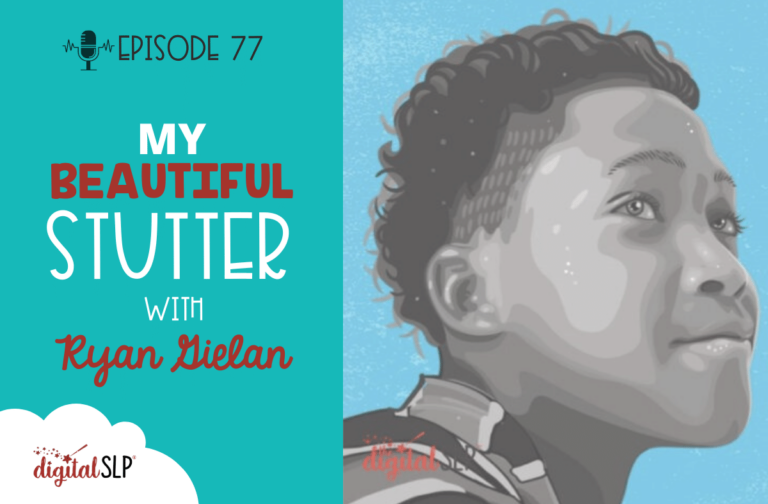
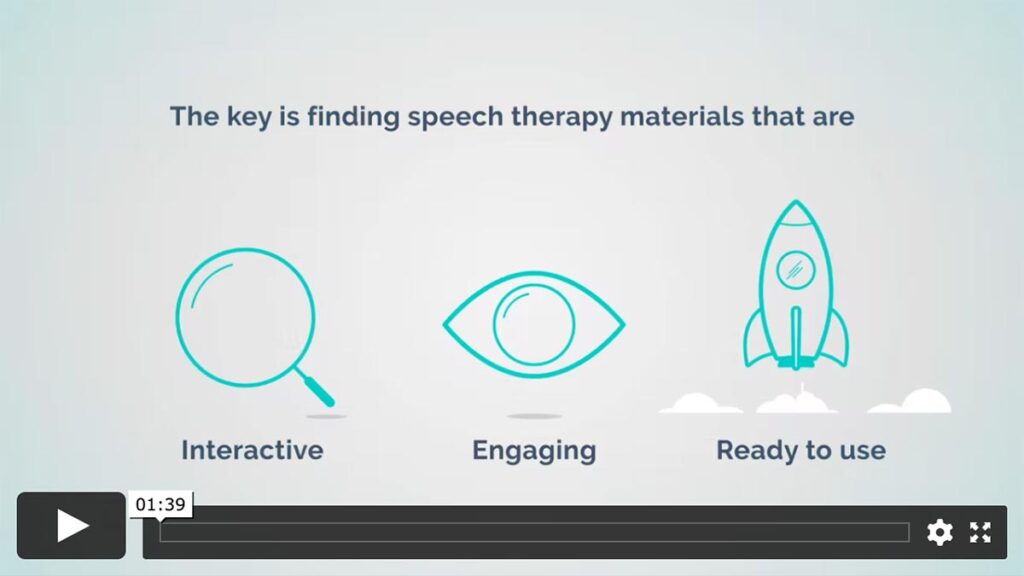


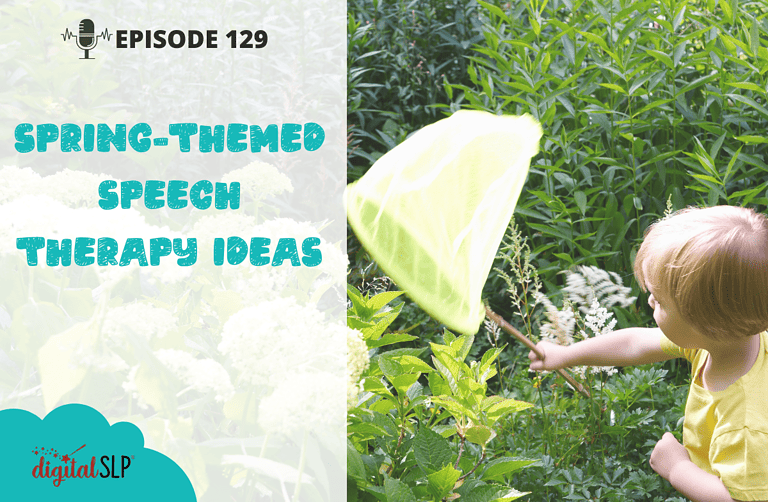
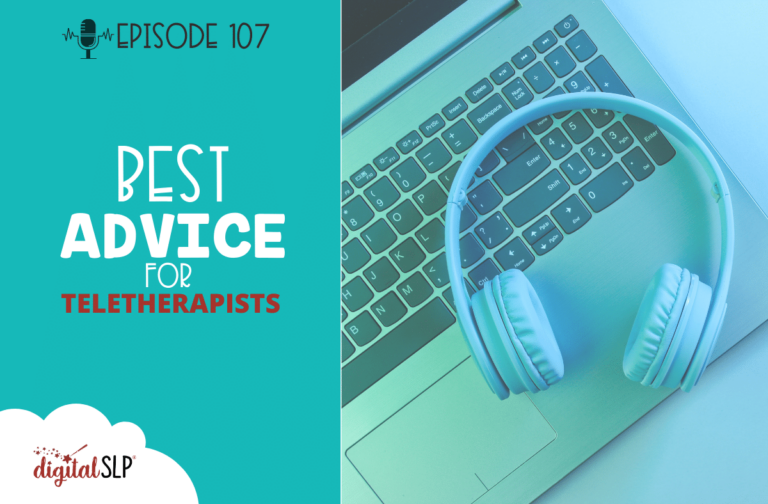

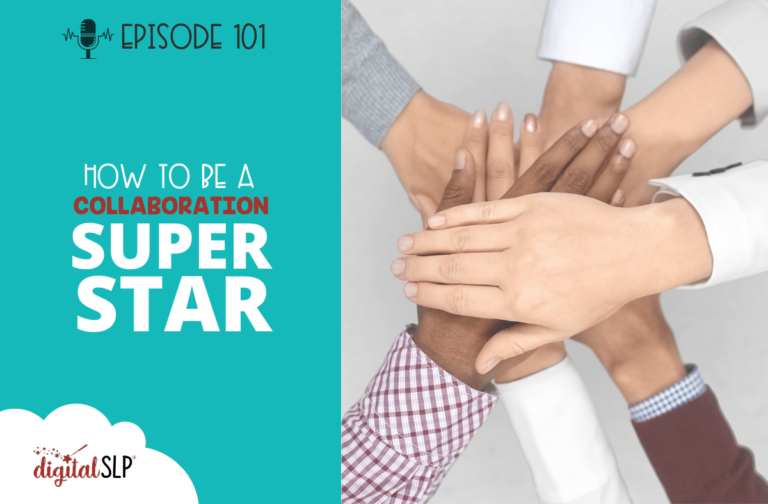
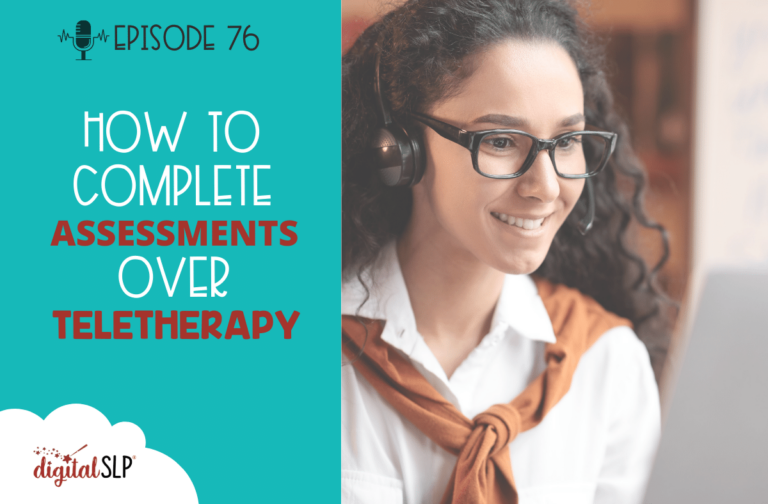


Recent Comments